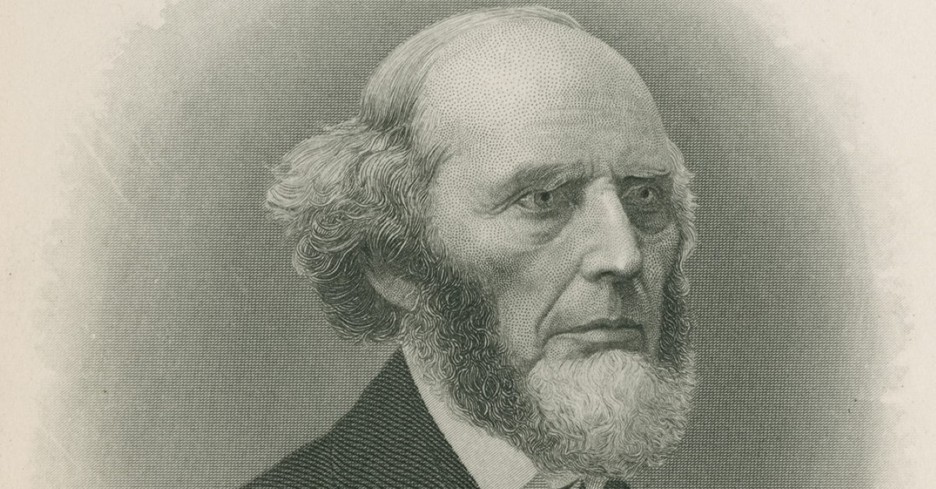
Who Was Charles Finney?
Charles Grandison Finney was an American Presbyterian minister and leader in the Second Great Awakening in the United States. He has been called The Father of Modern Revivalism. Finney was best known as an innovative revivalist during the period 1825–1835 in upstate New York and Manhattan, an opponent of Old School Presbyterian theology, an advocate of Christian perfectionism, and a religious writer.
Finney's Early Reputation
"Those bums are a bunch of con artists," Theodore Weld told his friends one day. "They can't fool me. My father is a genuine, well-trained pastor. Not these revivalists, though. Especially Charles Finney." He spat out the name. "He's a disgrace--not even a real minister."
"I heard Finney's coming to town," said one of the gang. "We should go just to mock him."
"That sounds like fun," Theodore said, "but I'm going to Utica to see my aunt."
"The saintly Aunt Clark?"
"The very one. She may push me to go to church, but at least that baboon Charles Finney won't be there."
Aunt Clark Steps In
Oh, but he was. The fiery young preacher, Charles Finney, was making the rounds preaching to growing crowds in western New York. It just so happened that Finney was scheduled to preach at Aunt Clark's church that Sunday evening.
Many of the established churches didn't care for Finney's methods and beliefs. He taught that people could decide whether or not to believe in Jesus. He also allowed women to pray in public meetings with men and added an "anxious bench" at the front of the church, where people could wrestle with their salvation under Finney's piercing stare.
Aunt Clark liked Charles Finney's preaching and thought if Theodore could just hear Finney speak, he might turn to God. When Theodore came to visit, Aunt Clark came up with a plan. "Hurry then, or we'll be late," she called early Sunday morning.
While Theodore dressed, Aunt Clark rushed next door to her pastor's house where Charles Finney just happened to be staying. Here was a great opportunity! "I know you're not scheduled to preach till this evening, Mr. Finney, but my nephew Theodore Weld is coming with me this morning," she told the evangelist. "He doesn't care much for you, but hearing you preach would surely do him some good. He'd make a great leader in the church if someone could just get past his cocky attitude! Why he even goes around mocking you all over his college campus!"
Finney reared back his head and laughed at her honesty. "Well, that's nothing new! Nor has that ever stopped me from preaching the Gospel." He paused to reflect. "Might his father be the respected preacher, Ludovicus Weld?"
Keeping his sense of humor he said, "Obviously, the family piety hasn't rubbed off on the young upstart. This should be an interesting service, then. I will preach it after all and see what the Lord does."
Finney Understands

Charles Finney understood Theodore Weld's brash attitude. He remembered how as a young lawyer, he attended church, sang in the choir, and even read his Bible, yet his heart remained cold and unbelieving. He recalled the day long ago when he settled his questions of faith once and for all. His journey led him to the peace of a quiet wood. There, Finney knelt by an old log and gave his heart to God. Surrounded by the beauty and splendor of God's creation, Charles confessed his sins and felt God's forgiveness. He emerged from the woods a new man, anxious to share his faith with others. In fact, the very next morning he quit being a lawyer in order to preach the Gospel. Yes, Charles Finney understood Theodore Weld. He had been there, too, hearing but not understanding or accepting the Good News.
Theodore's Response
Theodore's aunt guided him to her usual pew, nodding and smiling at fellow churchgoers. He found himself wedged between her on one end and a gaggle of her godly friends on the other. Theodore settled in for some daydreaming, as he often did in church. It wasn't that his father wasn't a good speaker, but he had heard it all before. When he saw Charles Finney take the podium, he gave a start. "What!" he shouted.
Aunt Clark held her index finger to her lips to quiet him. Theodore tried to bolt like a squirrel chased by a dog, but his aunt leaned forward in her seat to pray, blocking his exit. When he tried to get out on the other side, her friends did the same thing. He sank back down, cursing under his breath. The renowned evangelist began preaching on the dangers of using your talents for the wrong reasons.
"Imagine, the Lord blesses you with health and energy, yet you come out on the wrong side of Jesus Christ! What a waste!"
Theodore was incensed that his aunt had tricked him into this, and now he felt the slings and arrows of Finney's words. He knew they were meant for him, and he wanted out. He was, however, hemmed in. Several times he rose to flee, and each time Aunt Clark formed a barricade. Finally, Theodore banged his hand on the pew in frustration, crossed his arms, and glared at the man. Later he said, "It felt like Finney was toasting me on the prongs of a fork."
Theodore Confronts Finney
Somehow Theodore survived, but the next day when he went to town, whom should he bump into but Charles Finney? "Do you know what it's like to sit like a prisoner in a pew while someone takes jabs at you, and there's nothing you can do about it?" Theodore ranted while a crowd gathered. "Men like you should be strung up and left to rot for the birds."
When Theodore finally came up for air, Finney answered him. "Mr. Weld, are you the son of a minister of Christ, and is this the way for you to behave?"
The young man stomped away in anger and shame, but Finney's words penetrated deep into his heart. He began wrestling with himself, and God. Within hours, Theodore sought a meeting with Charles Finney. "I came to apologize for my offensive behavior. Please forgive me. Your words stung, but you were right." He looked up at the preacher hopefully. "I have accepted Christ!"
Finney placed a hand on his shoulder. "All is forgiven. May I pray for you?" Theodore nodded.
Charles Finney's Ministry
Finney's energetic preaching and altar calls were something new in his day. Many established church leaders spoke out against him. Still, people often traveled hundreds of miles to hear him speak. Finney believed strongly that changed people could transform society. His converts and students went on to help revolutionize America by working to improve conditions of the downtrodden and abolish slavery. They also campaigned for women's rights.
Make It Real! Questions to make you dig a little deeper and think a little harder.
1. People traveled far to hear Charles Finney preach, even though he was not liked by many in the established churches. Why do you think people were drawn to him?
2. What evidence do you see that Charles Finney believed strongly in prayer?
3. Finney was a part of the "Second Great Awakening" in America. What do you think is meant by the words "Great Awakening?" Why might Finney's bold style have been just what America needed at this time?
4. Have you ever invited a friend to come along to church with you so they could learn more about God? If not, whom would you invite?
Suggested reading:
Great Stories in American History by Rebecca Price-Janney (Horizon, 1998)
Charles Finney: The Great Revivalist Bonnie C. Harvey (Heroes of the Faith Series, 1999)
Photo Credit: Public domain photo from 1876 book on Charles Finney. Via Wikimedia Commons.
This article is part of our People of Christianity catalog that features the stories, meaning, and significance of well-known people from the Bible and history. Here are some of the most popular articles for knowing important figures in Christianity:
How Did the Apostle Paul Die?
Who are the Nicolaitans in Revelation?
Who Was Deborah in the Bible?
Who Was Moses in the Bible?
King Solomon's Story in the Bible
Who Was Lot's Wife in the Bible?
Who Was Jezebel in the Bible?
Who Was the Prodigal Son?








